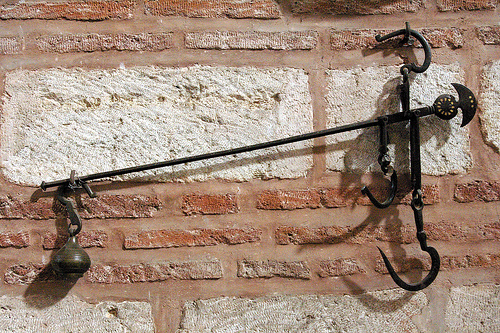
Photo by takaken2008 on Flickr
What are 21st century skills and are these skills different to those currently being taught in schools? How radically do we need to change our teaching practices?
Daniel Willingham has written an informative post in Britannica blog entitled Education for the 21st century: balancing content with skills, in which he asks and answers the important question: why the sudden concern for 21st century skills.
Willingham quotes reports and books that point to:
changes in the skills required for most jobs. Our economy is generating fewer jobs in which workers engage in repetitive tasks throughout their day (e.g., assembly line work) and more information-rich jobs that present workers with novel problems and that require analysis and teamwork.
Willingham quotes Elena Silva in defining these skills as having at their core the ability to
analyze and evaluate information, create new ideas and new knowledge from the information.
He also adds to creativity and critical thinking the following essential skills for the 21st century from a report from the partnership for 21st century skills :
new knowledge … [and] global awareness, media literacy, information literacy, and other new content.
Now, this is where I start sitting up and taking note. Although I’m fully on board with the need for 21st century skills, I haven’t felt comfortable substituting content for skills alone. Memorisation of facts without the skills is obviously a waste of time, and I understand that you need the skills to locate, manage and synthesize the freely available information to create knowledge, but we still need a knowledge of some content, surely, otherwise the skills are free floating and without context.
Willingham ties up the skills/content dilemma very well for me. He says that the 21st century skills require deep understanding of subject matter:
Shallow understanding requires knowing some facts. Deep understanding requires knowing the facts AND knowing how they fit together, seeing the whole.
And skills like “analysis” and “critical thinking” are tied to content; you analyze history differently than you analyze literature … If you don’t think that most of our students are gaining very deep knowledge of core subjects—and you shouldn’t—then there is not much point in calling for more emphasis on analysis and critical thinking unless you take the content problem seriously. You can’t have one without the other.
As usual, a balance is required to make things work effectively, and this should surely be common sense. This way we avoid the too often pendulum swings that have occurred in the history of education
between an emphasis on process (analysis, critical thinking, cooperative learning) which fosters concern that students lack knowledge and generates a back-to-basics movement that emphasizes content, which fosters concern that student are merely parroting facts with no idea of how to use their knowledge, and so on.
For me, this balance is the key to identifying the problems and solutions of 21st century learning. I’m trying to understand the shift in education more deeply to avoid a superficial conversion. I think that, for me at least, more discussion will enable a deeper understanding of the learning processes and the corresponding teaching processes that are essential to prepare students for work and life in these times.
As usual, I welcome and am grateful for any comments, and look forward to generating some discussion.
